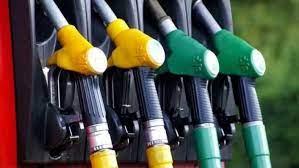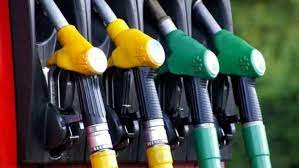
Russia put an indefinite halt on the supply of diesel and petrol to the majority of nations, which runs the risk of interrupting fuel supplies just as winter sets in and might worsen existing shortages worldwide.
The Kremlin announced Thursday that it would impose "temporary" limitations on diesel exports in order to stabilise fuel prices on the local market. The decree was signed by Prime Minister Mikhail Mishustin.
Except for four former Soviet governments, all nations are subject to the immediate-effect prohibition, which has no expiration date. Belarus, Kazakhstan, Armenia, and Kyrgyzstan—all members of the by Moscow-led Eurasian Economic Union—are among the nations excluded from the embargo.
Russia is a significant crude oil exporter and one of the biggest providers of diesel in the world. The possible effects of Russia's embargo worry market participants, especially at a time when global diesel supplies are already at low levels. On Thursday, the announcement caused a $1 increase in the price of a barrel of oil, which later declined for the day.
On Friday afternoon in London, benchmark Brent crude futures traded 0.9% higher at $94.13 a barrel, while West Texas Intermediate futures increased 1.1% to trade at $90.62.
Energy specialists worried that Moscow could once again be attempting to weaponize gasoline supplies ahead of another winter heating season due to the ambiguous language used in Russia's announcement, making it difficult to determine exactly how long the embargo would be in effect.
According to Reuters, a Kremlin spokeswoman stated on Friday that the fuel export ban will continue for as long as was required to maintain market stability.
Prior to the intervention on Thursday, analysts claimed that the weak currency, domestic refinery maintenance, and government-led initiatives to boost domestic supply had put pressure on Russian diesel exports.
“All deals agreed before the regulation took effect are still on, meaning the likelihood of an immediate halt in diesel and gasoline exports is unlikely, most probably it would take 1-2 weeks for the impact to transpire,” Viktor Katona, lead analyst at Kpler, said in a research note published Friday.
“By that point, however, the government might already annul this specific piece of legislation, as abruptly as it was published,” he added.
Before the Kremlin invaded Ukraine in full in February of last year, Russian refineries were thought to be exporting oil products at a rate of over 2.8 million barrels per day. According to ING, that amount has now decreased to about 1 million barrels per day, but Moscow is still a significant player in the world's energy markets.
In a research note released on Friday, Warren Patterson, head of commodities strategy at ING, stated that Russia's embargo on gasoline exports was a significant move ahead of the Northern Hemisphere winter, a time when demand would generally increase seasonally.
“The middle distillate market was already seeing significant strength ahead of this ban with inventories tight in the US, Europe and Asia as we head into the Northern Hemisphere winter,” Patterson said, citing factors such as OPEC+ production cuts, recovering air travel and Europe’s struggle to replace Russian middle distillates after a ban came into effect in February.
“The loss of around [1 million barrels per day] of Russian diesel in the global market will be felt and only reinforces the supportive view we have held on middle distillate cracks and as a result on refinery margins,” he added. “How much upside really depends on the duration of the ban.”
Saudi Arabia, the head of OPEC, announced on September 5 that it will continue its 1 million barrel per day production reduction through the end of the year, and non-OPEC leader Russia promised to cut back on oil exports by 300,000 barrels per day until then. Both nations have stated they will evaluate their voluntary cuts every month.
“The purpose of the ban is apparently to address tightness and high prices in domestic Russian markets, where high oil prices combined with a weakened rouble, must be painful for Russian consumers,” Callum Macpherson, head of commodities at Investec, said Friday.
“However, there are also echoes with disruptions to Russian gas supplies to Europe that started in 2021. They also began as supposedly temporary disruptions while gas was held back to fill domestic storage — we all know what happened there,” he added.
“It might be a coincidence that this ban has been announced the day after Russia had a tough time at the UN, or it might be a broadening of the policy of using energy as a weapon in reaction to that.”
(Source:www.tbsnews.net)
The Kremlin announced Thursday that it would impose "temporary" limitations on diesel exports in order to stabilise fuel prices on the local market. The decree was signed by Prime Minister Mikhail Mishustin.
Except for four former Soviet governments, all nations are subject to the immediate-effect prohibition, which has no expiration date. Belarus, Kazakhstan, Armenia, and Kyrgyzstan—all members of the by Moscow-led Eurasian Economic Union—are among the nations excluded from the embargo.
Russia is a significant crude oil exporter and one of the biggest providers of diesel in the world. The possible effects of Russia's embargo worry market participants, especially at a time when global diesel supplies are already at low levels. On Thursday, the announcement caused a $1 increase in the price of a barrel of oil, which later declined for the day.
On Friday afternoon in London, benchmark Brent crude futures traded 0.9% higher at $94.13 a barrel, while West Texas Intermediate futures increased 1.1% to trade at $90.62.
Energy specialists worried that Moscow could once again be attempting to weaponize gasoline supplies ahead of another winter heating season due to the ambiguous language used in Russia's announcement, making it difficult to determine exactly how long the embargo would be in effect.
According to Reuters, a Kremlin spokeswoman stated on Friday that the fuel export ban will continue for as long as was required to maintain market stability.
Prior to the intervention on Thursday, analysts claimed that the weak currency, domestic refinery maintenance, and government-led initiatives to boost domestic supply had put pressure on Russian diesel exports.
“All deals agreed before the regulation took effect are still on, meaning the likelihood of an immediate halt in diesel and gasoline exports is unlikely, most probably it would take 1-2 weeks for the impact to transpire,” Viktor Katona, lead analyst at Kpler, said in a research note published Friday.
“By that point, however, the government might already annul this specific piece of legislation, as abruptly as it was published,” he added.
Before the Kremlin invaded Ukraine in full in February of last year, Russian refineries were thought to be exporting oil products at a rate of over 2.8 million barrels per day. According to ING, that amount has now decreased to about 1 million barrels per day, but Moscow is still a significant player in the world's energy markets.
In a research note released on Friday, Warren Patterson, head of commodities strategy at ING, stated that Russia's embargo on gasoline exports was a significant move ahead of the Northern Hemisphere winter, a time when demand would generally increase seasonally.
“The middle distillate market was already seeing significant strength ahead of this ban with inventories tight in the US, Europe and Asia as we head into the Northern Hemisphere winter,” Patterson said, citing factors such as OPEC+ production cuts, recovering air travel and Europe’s struggle to replace Russian middle distillates after a ban came into effect in February.
“The loss of around [1 million barrels per day] of Russian diesel in the global market will be felt and only reinforces the supportive view we have held on middle distillate cracks and as a result on refinery margins,” he added. “How much upside really depends on the duration of the ban.”
Saudi Arabia, the head of OPEC, announced on September 5 that it will continue its 1 million barrel per day production reduction through the end of the year, and non-OPEC leader Russia promised to cut back on oil exports by 300,000 barrels per day until then. Both nations have stated they will evaluate their voluntary cuts every month.
“The purpose of the ban is apparently to address tightness and high prices in domestic Russian markets, where high oil prices combined with a weakened rouble, must be painful for Russian consumers,” Callum Macpherson, head of commodities at Investec, said Friday.
“However, there are also echoes with disruptions to Russian gas supplies to Europe that started in 2021. They also began as supposedly temporary disruptions while gas was held back to fill domestic storage — we all know what happened there,” he added.
“It might be a coincidence that this ban has been announced the day after Russia had a tough time at the UN, or it might be a broadening of the policy of using energy as a weapon in reaction to that.”
(Source:www.tbsnews.net)














